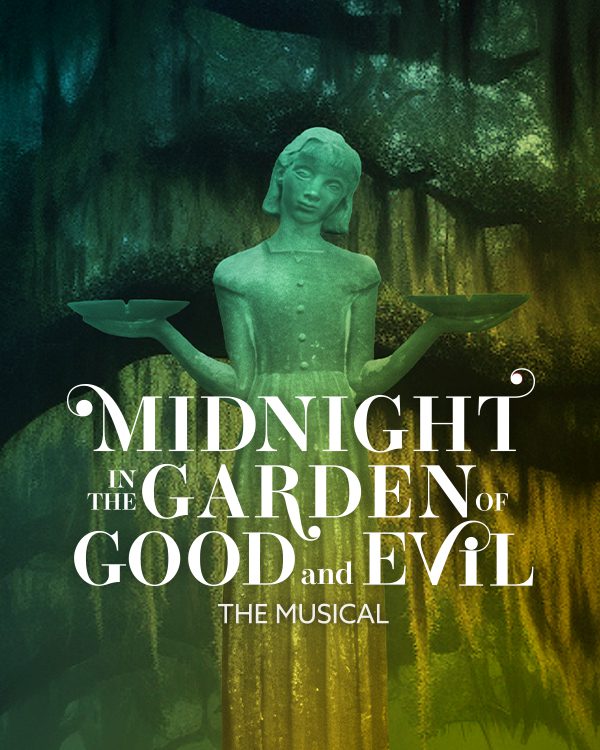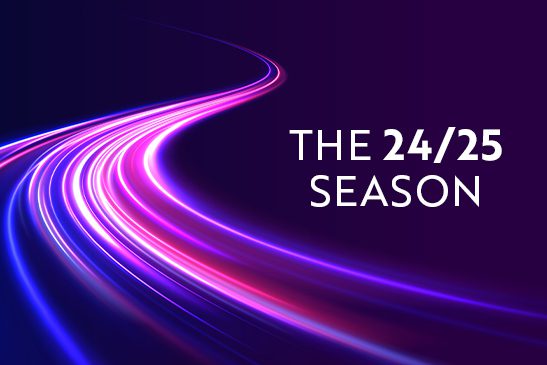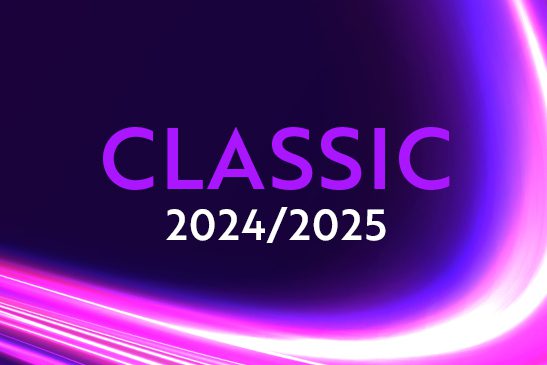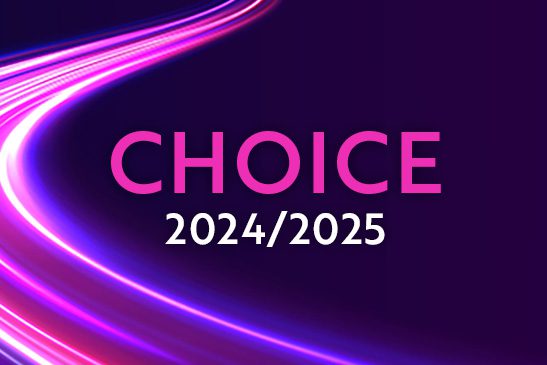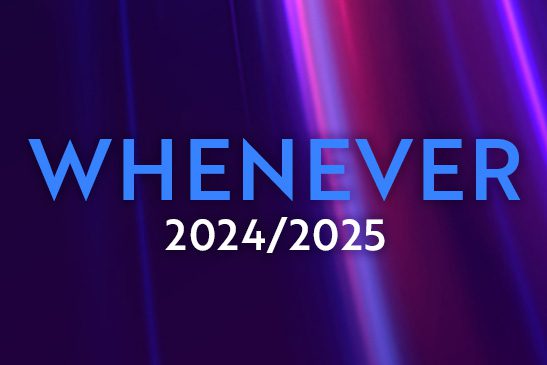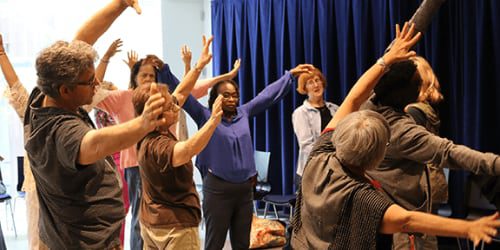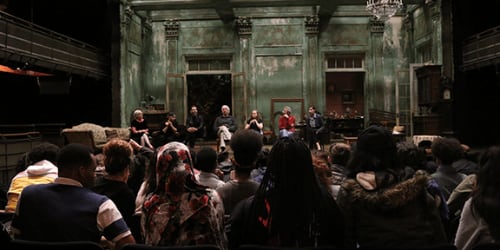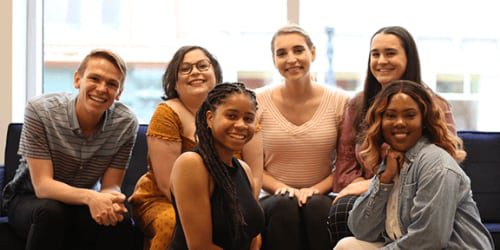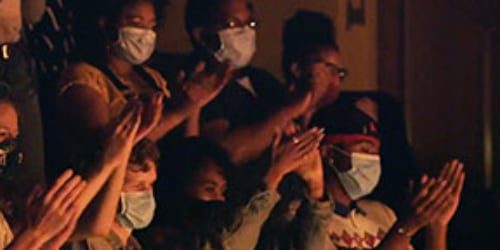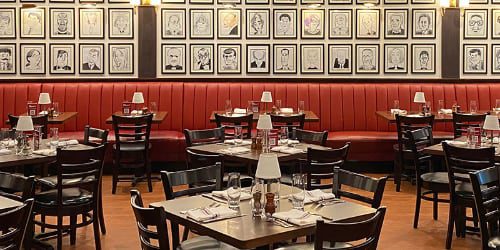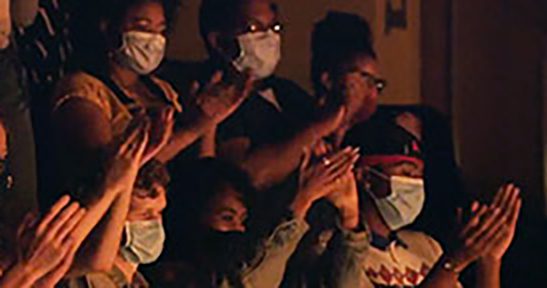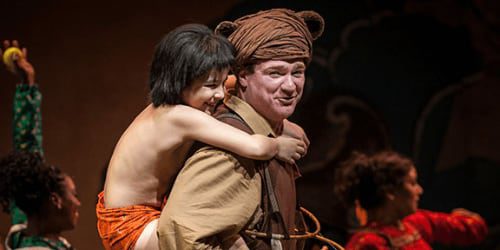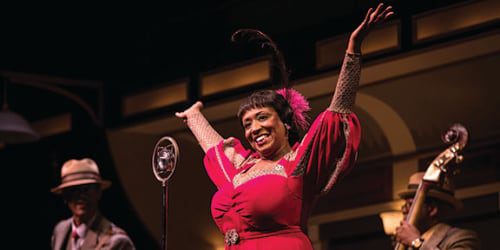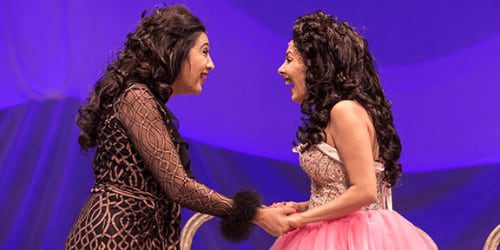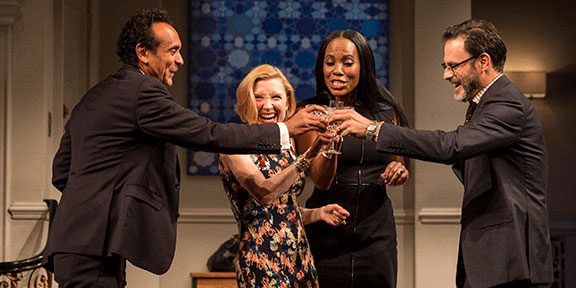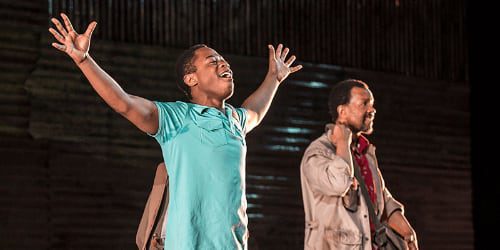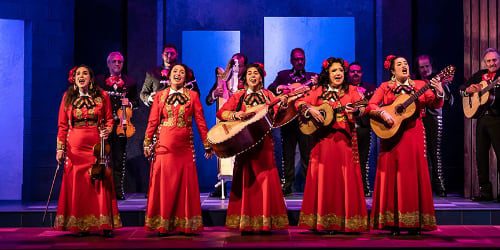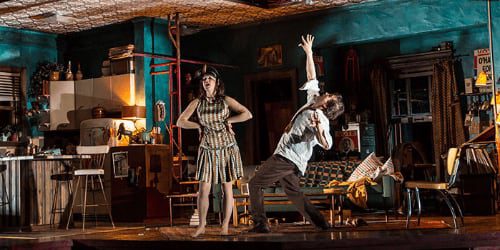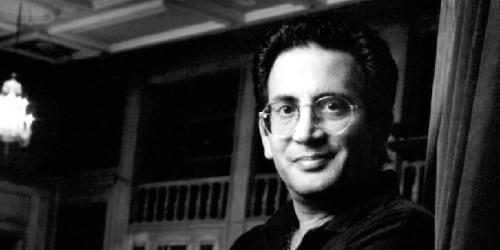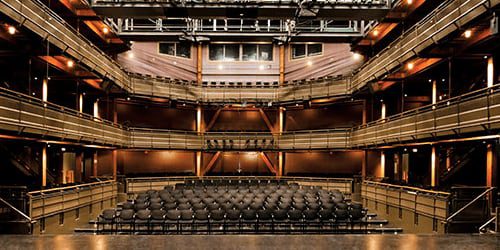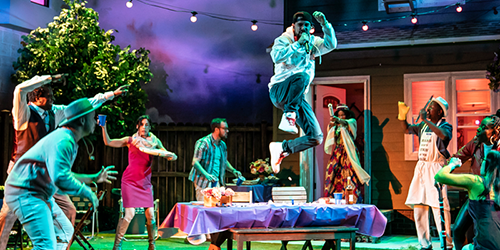Highway Patrol is on stage now!
GET TICKETS
A Conversation with Dana Delany
By Neena Arndt
A few weeks before rehearsals began, Highway Patrol co-creator and Emmy Award-winning actor Dana Delany sat down (virtually) with the Goodman’s Literary Manager and Dramaturg Neena Arndt to talk about her longtime love of theater and our society’s collective love/hate relationship with the internet.
NEENA ARNDT: A lot of audience members might know you as a film or TV actor. But you’ve stepped elegantly between the screen and stage for many years. How did your love of acting come about? Were you a theater kid in high school?
DANA DELANY: Yes, I always did theater. It started in elementary school. I was kind of shy as a kid, which I think is true of a lot of actors. I knew from like the age of three that I wanted to be an actor; it was almost like a calling for me, I never wanted to do anything else really. I grew up in Connecticut so I got to see a lot of theater in New York–my parents were great about taking us to the theater. So when I graduated from college I just went right to New York. In my generation you were supposed to start in New York, start in the theater, you didn’t go straight to LA. You learned your craft and then maybe you did film. Never television–that was looked down upon then. But the world has changed.
NA: There’s so much good TV now, it’s totally different. So at this point in your career, what keeps you coming back to the theater?
DD: I think it’s because it scares me! I think the older you get you have to test yourself and keep trying new things. I lucked out with Jen, Mike and Dane (co-creators of Highway Patrol) because I did a play with them in 2018 and it was a great experience. Because, you know, theater’s hard: you’re up there naked on the stage, figuratively and sometimes literally. But the experience that I had with them was so positive so it’s great to be able to work with them again.
NA: Highway Patrol is about a particular experience you had on social media more than 10 years ago, when the landscape of Twitter was very different. I think we all have our own personal relationship with the online world, and it changes over time as we get older and as the internet itself changes. What has your relationship with the internet been like over time?
DD: I’m of two minds about it, just like most people are. I really like my computer. But I think I’m definitely addicted to it. I live by myself so I spent a lot of time online. I think about Steve Jobs a lot and I wonder if he knew this would happen. Did he know that he would create this addiction? You walk down the street and everybody’s got this thing in their hand and you go to dinner and people put their phones on the table and it’s not frowned upon. On film sets, in between shots, we used to sit in our chairs in a circle and tell stories, because we had time to kill. You got to know people, and also they were really great stories. And then when we got the iPhones, people stopped talking to each other.
This play is set in 2012 and the world has changed so much since then. Around that time, I was on the show Body of Proof and ABC pretty much told me I had to go on Twitter. I wasn’t interested. I mostly just did emails back then. I didn’t do social media, although I was an early adopter of a personal website. I did not start it myself. I had a fan who said, “Would it be okay if I started a website for you?” and this was around 1995. I was like, “Sure, I don’t know what that is, but okay.” But when I had to go on Twitter for Body of Proof, there was a little bit of a war between the fans from the website and the fans on Twitter, and they got proprietary about who was more important. The website went away because the world had changed and you could get all of that on Twitter and it was more accessible. I really miss my website because it was really nice and civilized and moderated by the webmaster. With Twitter that all went out the window. And I feel like Twitter has changed so much because when I started in 2011 it really was the new frontier and I did think it was utopian and democratic and everybody could talk to anybody they wanted. I met people that I would never have met that I’m still friends with. I mean there will be people coming to this play that I met on Twitter coming from Scotland and England and France! But I feel like it’s devolved. We get all excited about the new thing and all the possibilities, and then human nature takes over and money and ego and politics get involved.
NA: Just like the plot of an ancient Greek play. And now you’re going back to this ancient art form–theater–to open up a discussion about this new technology.
DD: It’s such an interesting experiment to have a communal experience in the theater, live, talking about this thing we’re all dealing with–this addiction, this lack of real communication between people. We tell stories and we go to the theater so that we won’t be lonely. I worry that that’s going away. But we still need it.
Neena Arndt is the Literary Manager and Dramaturg for Goodman Theatre.
